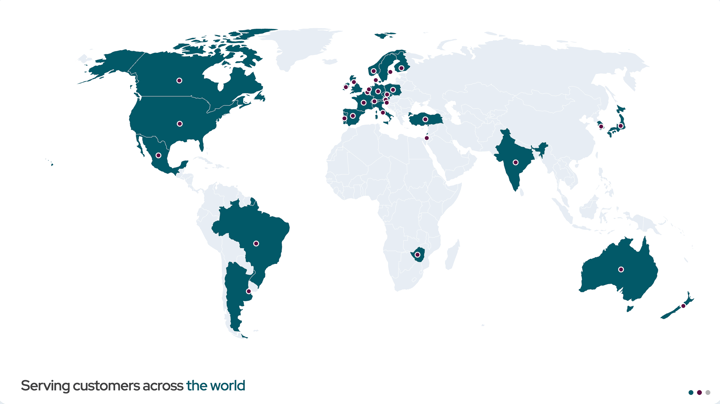Enhancing mobility and safety for citizens: a smarter power wheelchair can increase the user's independence and real-world technology inclusion

Users of conventional power wheelchairs can face some significant challenges, including avoiding collisions, drop-offs, and tips. Kevin Lannen, Senior Embedded Systems Engineer, at mobility company LUCI explains that crash tests have found the force that would hit the femur in an accident with one of these power wheelchairs was more significant in some cases than what would happen in some car crashes. Concussion and possible brain damage are inherent risks from such events that can reduce the confidence and independence of the wheelchair user. Power wheelchairs can be made more stable, secure, and connected with the integration of embedded technologies.
LUCI's groundbreaking solution is a removable accessory that uses cloud and sensor-fusion technologies to keep the wheelchair user at the center of the technology experience. It bolts onto a power wheelchair, and provides a set of safety features. These include stereo vision cameras, radar, and ultrasonic sensors that detect obstacles and steps. The system can automatically intervene to slow down or stop the wheelchair to prevent an accident or injury to the user. It works similarly to lane keep assist and automatic braking in automobiles. Caregivers are also alerted when the wheelchair battery runs low. The accessory was covered in Fortune Magazine and the company has helped over 500,000 people in wheelchairs achieve greater mobility and independence.
A power wheelchair is a FDA Class 1 Medical Device, so user safety and security are paramount in the product's design, testing, and authorization for actual world use. When the LUCI accessory is fitted to the power wheelchair, users are kept safe with regular improvements to the processing algorithms and new features and bug fixes leveraging secure and robust OTA software updates.
Mender provides LUCI with the hosted infrastructure for robust OTA software updates. Mender adheres to a security-by-design approach for deploying software upgrades - increasingly important for medical device design and market authorization. By October 2023, the FDA's "refusal to accept policy," will start to refuse to accept connected medical devices that do not include a suitable cybersecurity plan. Developers must now design and maintain procedures that show, with reasonable assurance, "that the device and related systems are cyber secure" and create post-market updates and patches to the device and connected systems that address "on a reasonably justified regular cycle, known unacceptable vulnerabilities. This is something that LUCI has already achieved. Kevin Lannen, Senior Embedded Systems Engineer, LUCI, said, "We're excited to keep pushing out solutions to our users that give them safe, independent mobility. Mender OTA is a crucial part of keeping users safe by enabling the release of new capabilities, bug fixes, and security patches."
Agility and value are increased by adding new software features based on user feedback. For example, LUCI just released a feature for low-vision users where LUCI's sensors can ignore the user's white cane. Regular release updates have improved the ability to detect obstacles and ignore "false" obstacles; to enable this, all the algorithms need to be finetuned and updated. Sensor snapshots can be shared with the engineering team, so OTA allows the LUCI team to learn and address the needs of their users continuously. Operations are also optimized by leveraging remote capabilities and eliminating onsite requirements.
With the Mender OTA solution, the LUCI engineering team can deploy software updates entirely over-the-air and provide a fail-safe design with rollback capabilities. They can utilize the Yocto Embedded Linux device operating system, and support application updates for Intel RealSense - depth and tracking technologies designed to give machines and devices depth perception capabilities. Mender also brings important fleet management capabilities that will be strategically important as the LUCI adoption grows. LUCI will be able to manage a device fleet at scale easily and minimize the bandwidth costs of deploying updates over cellular networks.
This will take LUCI co-founders Barry Dean and brother Jered Dean closer to their vision of turning “dumb wheelchairs into smart wheelchairs” and increasing user independence and real world technology inclusion.
Recent articles
New Mender experimental AI-enabled feature
Mender in 2025: A year in review with compliance, security, and AI-driven growth
What’s new in Mender: Enhanced delta updates and user experience
Learn why leading companies choose Mender
Discover how Mender empowers both you and your customers with secure and reliable over-the-air updates for IoT devices. Focus on your product, and benefit from specialized OTA expertise and best practices.


